
Flight from Tacloban to Nagoya
Flight Deals from Philippines✈️
Flight Information from Tacloban (TAC) to Nagoya (NGO)
When is the cheapest flight time from Tacloban to Nagoya?
Which Airlines Offer Direct Flights from Tacloban to Nagoya?
Get a special discount on hotel bookings in Nagoya!
""
About Nagoya
Nagoya is one of the cities in Japan. It is the fourth most populated city in Japan, with over two million citizens. This city was first developed as the castle town of Owari. Hence there are many interesting historic buildings in this city like Nagoya Castle. There are many interesting attractions in Nagoya, so be sure to come and explore this city.
Best time to fly from Tacloban to Nagoya
The best time to travel from Tacloban to Nagoya is from late March to mid-April. It is when the cherry blossom flowers are set to be in full bloom and the weather is pleasant, suitable for a picnic under the shady cherry blossom trees. The cherry blossom blooms in the peak season. Hence, many tourists will come during this season to experience it. If you plan to visit Nagoya in this season, make sure you plan your trip earlier as the price for flight and accommodation will be higher than usual.
Main airports available in Tacloban and Nagoya
Daniel Z. Romualdez Airport – Daniel Z. Romualdez Airport is an airport located in the city of Tacloban. It is classified as a Class 1 principal (major domestic) airport. It was named from a former speaker in the Philippine House of Representatives, Daniel Z. Romualdez. It is also known as Tacloban City Airport. It is located around 12 kilometres from the city’s centre. It is the main gateway from Manila and Cebu to the Eastern Visayas Region in central east Philippines. It also connects the city of Tacloban to other cities in the Philippines and around the world. It is the third rapid growing airport in the Philippines. It was rebuilt back after the tragedy of Typhoon Haiyan that hit this city in 2013. It is a single-story airport that makes it more comfortable and quicker for passengers to move. It has many facilities like restaurants, money changer counter, free Wi-Fi and shops inside the airport. Besides, there are many public transportations available in this airport for everyone to use here daily.
Chubu Centrair International Airport – Commonly known as Chubu Airport, Chubu Centrair International Airport is one of the two airports in Nagoya. It is located at Tokoname City in Aichi Prefecture around 35 kilometres south of Nagoya. Chubu Airport is the hub for All Nippon Airways, Jetstar Japan and AirAsia Japan. It has many facilities like restaurants, money changer counter, free Wi-Fi and shops inside the airport. Besides, there are many public transportations available in this airport for everyone to use here daily.
Climate pattern in Tacloban and Nagoya
Compared to the tropical climate in Tacloban, Nagoya experiences four seasons. Tacloban only has a dry season from December to May and wet season from June to November. In Nagoya, spring is from March to May. Summer is June to August, autumn is September to November and winter is December to February. The average maximum temperature in Nagoya is 20 degrees Celcius while the average minimum temperature is 11.8 degrees Celcius.
Highlights attractions in Nagoya
Atsuta Shrine– Atsuta Shrine is one of the most important Shinto shrines in Japan. Located in a wooded park south of Nagoya station, Atsuta Jingu Shrine was modelled after Ise Jingu (Japan's most famous shrine) in the Japanese Shinmei-zukuri architectural style. It is renowned for Imperial Insignia, the "grass-mowing sword", one of only three in Japan. Based on Japanese mythology, the sword initially belonged to the storm god, Susanoo, but was gifted to legendary hero Yamato-takeru as he went on the journey to conquer the eastern province. The northern part of the wooded precinct is the main shrine, Hongu. An enclosing wall surrounds it, and to the east is the Treasury. It is a modern building that contains a large number of crafts, including old and modern paintings, ceramics, jewellery, and traditional masks.With over 1900 years of history, Atsuta Jingu Shrine is the oldest landmark in Nagoya.
Nagoya Castle – Nagoya Castle is a symbol of Nagoya for over 400 years. Most of the castle buildings were destroyed during the war in 1945. It was completely rebuilt in 1959. It is one of the city's most visited landmarks. It was built in 1612 during the Edo period. This beautiful yet complex structure includes highlights such as a 48-meter-tall main tower. It is also famous for its two gilded dolphins high up on its gables. The gables now house a museum that contains art treasures such as painted wall screens, sliding doors and wall paintings mostly of the Kano school. From the fifth floor of the tower are widespread views of the city and the Nobi Plain. Three of the original corner towers survive the ruins, along with the second gateway and walls, and they are fun to explore, and so is the nearby Ninomaru Garden with its teahouse. Seeing the castle shrouded in snow would be an unforgettable experience.
Osu Kannon and Osu Shopping District – Dating back to 1333, Osu Kannon is said to hold one of the biggest Kannon statues (the goddess of mercy) in Japan. However, Osu Kannon is also famous for holding flea markets on its grounds on every 18th and 28th of the month. It is located between 2 subway station. Thee area is packed with around 1200 shops and restaurants. If you like to shop and collecting rare and vintage collectables, this place is a must place for you to visit.
Flight Information to Nagoya
Flight Duration | 13 hr(s) 35 mins |
Airport in Tacloban | |
Airport in Nagoya |
Frequently Asked Questions
Of course you can get Tacloban promo tickets to Nagoya. Traveloka offers Tacloban - Nagoya flight ticket promos so you can save more. Look for the latest Traveloka promo info and regularly check the Traveloka website and social media to find out about Traveloka's latest Tacloban - Nagoya flight ticket promos.
-
There are two types of reschedules that you can use, the first is the Regular Reschedule and the second one is Reschedule+. Basically, the two options have the same steps, but in a particular step, you need to choose between Regular Reschedule and Reschedule+. Please follow this guide for more detailed information:
1. Go to your Traveloka App homepage and tap Bookings.
2. Open your e-ticket for the flight you want to reschedule. Go to the Manage Booking section and tap Reschedule.
3. You will be directed to the Flight List, tap Continue to Select Flight(s).
4. Tick the flight(s) and passenger(s) that you want to reschedule.
5. Below, you will see the Reschedule Type section. You can choose between Regular Reschedule or Reschedule+.
6. Once you’ve selected the type of reschedule you want, tap Continue.
7. Please read the Reschedule Terms & Conditions. After you’ve finished, tick I agree to the Reschedule Policy, then tap Continue.
8. Now you will need to fill in the details to search for your new flight. Once you’ve finished, tap Search.
9. Pick one of the newly available flights that suits your needs.
10. After you’ve selected your new flight, you need to review the new flight and price details.
11. If everything is already in place, tap Continue to move to the payment process.
12. Choose your preferred payment method and complete your payment.
13. Once your payment is received and the process is completed, find your new e-ticket on the Bookings page and your email.
-
For an easier refund process, make sure to log in to your Traveloka account when booking. Then, follow these steps to request your refund:
1. Log in or register to Traveloka
Log in to the Traveloka account used during booking. If you don't have an account, please register to Traveloka using the same email used to make the booking.
2. Open your e-ticket through My Booking
Go to My Booking and choose the booking you wish to refund. Then, click Refund.
3. Read your refund policy and estimation.
You will be able to see the refund policy for your booking, as well as the refund amount estimation. Then, you can click Start My Refund.
4. Complete your refund details and documents
Select the flight and passenger(s) you wish to refund. Make sure to select the correct refund reason, and to upload the relevant supporting documents (if applicable).
5. Submit your refund request
Review your refund details and click Submit Refund. Your refund request will then be reviewed by Traveloka, and forwarded to the airline.
Tacloban to Nagoya flights serve infant or child passengers, with general conditions including:
- Infants must be accompanied by an adult passenger who pays the adult fare.
- One baby must be accompanied by one adult passenger who is willing and able to take full responsibility for the baby.
- The accompanying adult passenger must be on the same flight, in the same class and at the same destination as the infant passenger.
Make sure you have referred to the regulations of the airline you are using when flying with babies or children.
Baggage policy on Tacloban - Nagoya flights in general is as follows:
- Do not carry sharp objects/weapons or blunt objects that could cause potential injury to other passengers. Sharp / blunt objects must be reported to the officer and stored in checked baggage.
- Do not carry objects containing gas that can trigger an explosion at a certain pressure.
- Do not carry liquid objects which exceeds the 100ml limit in a package in the aircraft cabin, so it needs to be stored in checked baggage. (Except for baby food or medicine that must be consumed during the flight).
- Every baggage checked in must be packed in good condition, in accordance with applicable regulations.
Always check and confirm with the airline you use regarding the maximum weight restrictions that can be carried on your Tacloban - Nagoya flight. Excess maximum baggage weight has been determined by each airline.
Of course you can get Tacloban promo tickets to Nagoya. Traveloka offers Tacloban - Nagoya flight ticket promos so you can save more. Look for the latest Traveloka promo info and regularly check the Traveloka website and social media to find out about Traveloka's latest Tacloban - Nagoya flight ticket promos.
Popular Airline
Interesting Activities in Nagoya
For all your unique travel choices, we got you
Popular Routes from Daniel Z Romualdez
Popular Routes from Chubu Centrair Intl
AIRLINE_DESTINATION_tab_title
Popular Routes
Popular Destinations
Popular Airlines
AIRLINE_DESTINATION_tab_title
Popular Airports
Top Domestic Destinations
Top International Destinations
Top Flight Airport


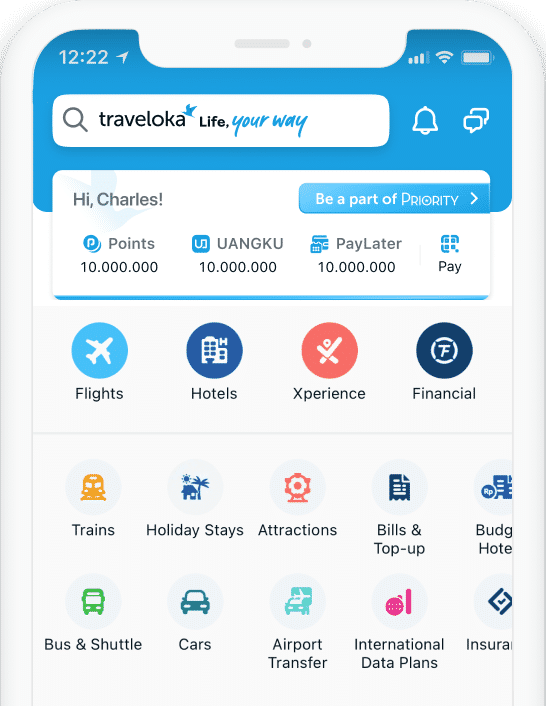



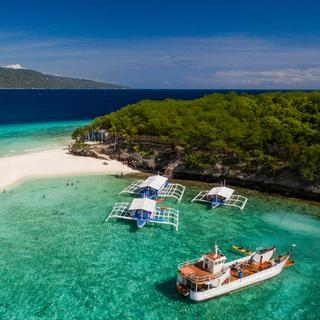
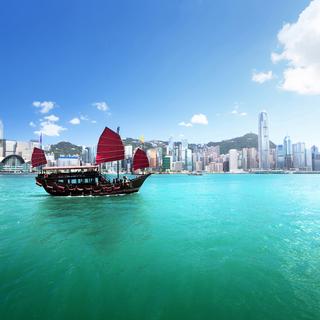

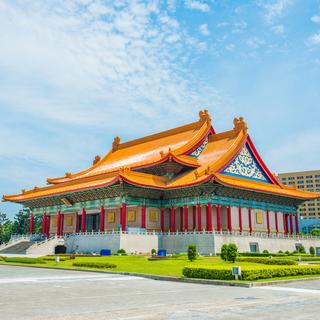
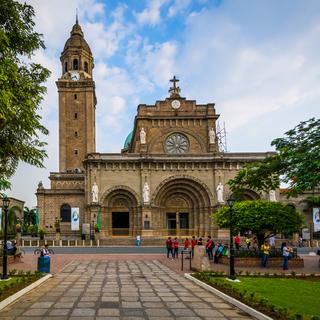


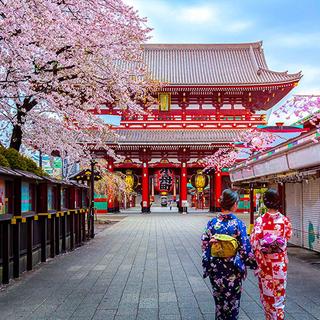
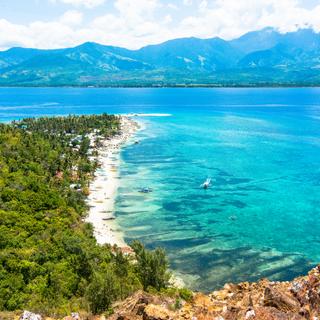



























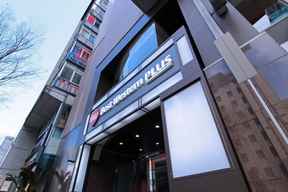


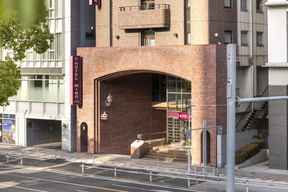






 Facebook
Facebook Instagram
Instagram TikTok
TikTok Youtube
Youtube